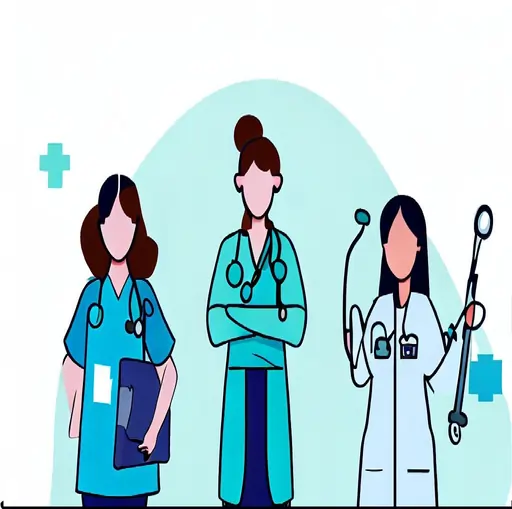Global Health Challenges and Nursing’s Role

In an increasingly interconnected world, global health challenges have become more prominent than ever before. Issues such as infectious diseases, healthcare disparities, and environmental crises transcend borders, affecting populations worldwide. Nursing, as a critical component of the healthcare system, plays a pivotal role in addressing these global health challenges. This blog aims to explore the significance of global health in nursing, provide insights into key challenges, and offer guidance to nursing students seeking help with their nursing assignment related to this vital topic.
Global Health and Nursing Constituents
Global health, in essence, encompasses the study and practice of improving health and achieving equity in health for all people worldwide. It goes beyond national boundaries and acknowledges the interconnectedness of health across nations and populations. Nursing, as a profession deeply rooted in patient care, advocacy, and public health, naturally extends its influence to global health.

The Role of Nursing in Global Health
The role of nursing in global health is multifaceted and indispensable. Nurses serve as frontline healthcare providers, offering crucial patient care and education on a global scale. Beyond the bedside, they advocate for equitable access to healthcare, contribute to essential research, and participate in health promotion efforts, making them essential agents of change in addressing global health challenges.
- Patient Care: Nurses are the backbone of healthcare systems worldwide. They provide direct, hands-on care to patients, whether it's in a bustling urban hospital or a remote village clinic. Their responsibilities go beyond administering medications and monitoring vital signs; they are often the primary point of contact for patients. In global health initiatives, nurses play a pivotal role in delivering care during outbreaks of infectious diseases, ensuring that patients receive the right treatment, support, and guidance. They not only address physical health but also provide emotional support, which is vital in times of crisis. Their ability to communicate effectively with patients from diverse cultural backgrounds makes them indispensable in providing holistic care.
- Health Promotion and Education: Nurses are often the educators and advocates for health in their communities. They are at the forefront of health promotion campaigns, helping individuals understand the importance of vaccinations, disease prevention, and healthy lifestyle choices. In global health contexts, nurses may lead educational efforts to raise awareness about diseases such as HIV/AIDS, tuberculosis, or malaria. They explain the benefits of vaccinations, dispel myths, and emphasize the importance of prevention. By disseminating critical information, nurses empower individuals and communities to make informed decisions about their health, which is crucial in the fight against global health challenges.
- Advocacy: Nursing organizations and individual nurses are powerful advocates for health policies that address global health challenges. They work tirelessly to influence policymakers and healthcare leaders, pushing for equitable access to healthcare resources and services. Nurses often collaborate with international organizations to support vaccination campaigns, maternal and child health initiatives, and disaster preparedness efforts. Their firsthand experiences in healthcare settings give them a unique perspective on the challenges and needs of patients and communities. They use this perspective to advocate for policies that prioritize the well-being of vulnerable populations and promote health equity on a global scale.
- Research: Nurse researchers contribute significantly to the body of knowledge surrounding global health issues. Their studies encompass a wide range of topics, from epidemiology and infectious diseases to healthcare delivery systems and health disparities. By conducting rigorous research, nurse researchers provide the evidence base necessary for informed decision-making in global health. Their work informs the development of evidence-based practices and policies that can effectively address global health challenges. Whether it's evaluating the impact of a vaccination campaign in a low-resource setting or studying the effectiveness of community health interventions, nurse researchers play a critical role in advancing our understanding of global health issues and finding practical solutions.
Key Global Health Challenges
Nursing students diving into assignments on global health must be aware of the major challenges faced by healthcare professionals and organizations worldwide.
Infectious Diseases
- Pandemics: The COVID-19 pandemic serves as a stark reminder of how infectious diseases can rapidly spread globally, overwhelming healthcare systems.
- Vaccine Distribution: Ensuring equitable access to vaccines worldwide is a pressing challenge in combating infectious diseases.
Healthcare Disparities
- Access to Care: Many regions suffer from limited access to healthcare services, leading to preventable illnesses and deaths.
- Health Inequalities: Disparities in healthcare outcomes persist, often disproportionately affecting marginalized populations.
Environmental Crises
- Climate Change: The impact of climate change on public health is undeniable, with rising temperatures, natural disasters, and changing disease patterns.
- Environmental Pollution: Pollution contributes to various health issues, including respiratory diseases and cancer.
Tips for Nursing Students on Global Health Assignments
All students seeking to complete their nursing assignment in global health should consider the following guidelines:
Research Thoroughly:
Research is the foundation of any well-informed global health assignment. Start by thoroughly understanding the specific global health challenge or topic you are assigned. Dive into the details, including causes, effects, and relevant statistics. Ensure that your data is recent and relevant to provide an up-to-date perspective. Delve into scholarly articles, reports, and case studies to lend credibility to your work and support your arguments with evidence.
Highlight Nursing's Role:
Throughout your assignment, make it clear that nursing plays a central and indispensable role in addressing global health challenges. Showcase nursing as a dynamic force within healthcare systems worldwide, capable of driving positive change. Discuss the multifaceted contributions of nurses to global health, including patient care, health promotion, advocacy, and research. Provide specific examples and case studies that illustrate nursing's diverse role within the context of the chosen global health issue.
Address Solutions:
Your assignment should go beyond identifying problems and propose practical solutions and strategies. Consider nursing interventions and policies that can have a meaningful impact on addressing the global health challenge. Emphasize the importance of collaboration among healthcare professionals, organizations, and governments in implementing these solutions. Highlight that addressing global health challenges often requires a coordinated effort, with nurses playing a central role in fostering such collaboration.
Stay Updated:
Acknowledge the dynamic nature of global health challenges and stress the importance of staying informed. Encourage nursing students to keep abreast of the latest developments and research in their chosen topic. This ensures that their assignments remain relevant and reflect the most current insights. Recommend reputable sources, journals, and organizations dedicated to global health to help students access credible and timely information for their assignments.
Engage with Case Studies:
Incorporate real-world case studies or examples to illustrate nursing's positive impact on global health challenges. These cases provide concrete evidence of nursing's effectiveness in different contexts. Encourage students to critically analyze these cases, evaluating both their successes and shortcomings. This analysis demonstrates a comprehensive understanding of the complexities involved in addressing global health issues and offers valuable insights for future improvements.
Conclusion
Global health challenges are multifaceted and demand a collaborative, multidisciplinary approach. Nursing, with its holistic perspective on healthcare and its emphasis on patient well-being, is uniquely positioned to contribute to global health initiatives. As nursing students, by delving into assignments related to global health, you not only deepen your understanding of these critical issues but also prepare yourselves to be compassionate, informed, and effective nurses on the global stage. Remember to research thoroughly, highlight nursing's role, propose solutions, stay updated, and engage with case studies to create impactful assignments that reflect the essence of excellence in your nursing education.